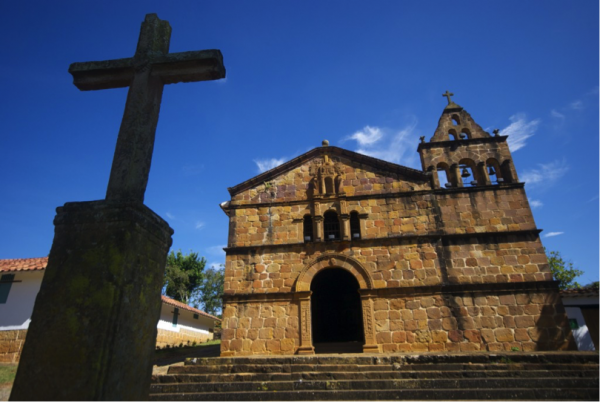


The South American country of Colombia acknowledges more national holidays than any nation except for India. Of its eighteen official holidays, twelve come from the Roman Catholic calendar, and three of those fall in June this year: Corpus Christi on June 8, Sacred Heart (Sagrado Corazón) on June 15, and the Feast of Saints Peter and Paul (San Pedro y San Pablo) on June 29. Considering that Colombia's population is 90% Roman Catholic, how does religion shape practices of giving within the country? Additionally, how does the Catholic Church mediate the philanthropic sphere of the Colombian diaspora, numbering 1.1 million (first and second generations), in the United States?
It turns out that Latin America in general, according to the World Giving Index, released annually by Charities Aid Foundation since 2010, has a weak practice of philanthropy in relation to the rest of the world. Colombia, ranked 53rd out of 135 indexed countries, is one of the higher-rated philanthropic countries in Latin America, according to the 2014 report. Venezuela, by comparison, is second to last, and Ecuador comes in at #132. Yet despite lower-than-average rankings in both money donated and time spent volunteering, Colombia has consistently ranked high in the "helping a stranger" category, even reaching number four in the world in 2013. Given the distrust created in the wake of decades-long civil and political conflict in Colombia, the fact that 70% of the population indicated they had helped a stranger appears remarkable.
According to the Migration Policy Institute, the social fragmentation caused by the conflict and repression in Colombia has been difficult to overcome, even in the diaspora. As a result, relatively few Colombian non-profits have been formed in the United States, considering the size of the diaspora population. The Catholic Church in Colombia, with its long history of social welfare programs, has served as an established and trusted institution through which many Colombian immigrants have channeled their charitable donations. For example, the Minuto de Dios Corporation, one of Colombia's most well-known religious organizations, has a counterpart in the United States that raises funds from the Colombian diaspora. One of its signature events is an annual banquet for which participants buy an expensive ticket to a simple supper of broth and bread, the proceeds of which go to build homes for the poor. For many Colombian donors to Catholic organizations, motivation for giving comes from a sense of religious obligation or a charitable instinct to relieve immediate suffering.
More recently, giving habits of Colombian Americans have begun to mirror the ethos of giving in the United States, the country that has ranked first in the World Giving Index three out of the survey's five years. Specifically, Colombian diaspora philanthropy is changing to reflect a desire for large-scale impact and permanent social change. The Miami-based organization, Give to Colombia, for instance, promises donors "the maximum [social] return on your investment," touting its accountability with a list of awards won for transparency and efficiency. Likewise, the Genesis Foundation, with offices in Bogotá, Miami, and New York, claims to be "one of the leading organizations in Colombia promoting innovative, efficient and results-oriented education." Colombian diaspora philanthropy will never decouple entirely from Catholicism, nor does it need to, but it will continue to expand and shift beyond its religious roots.